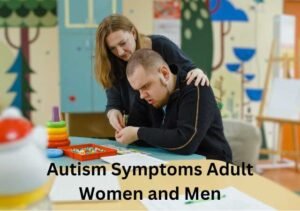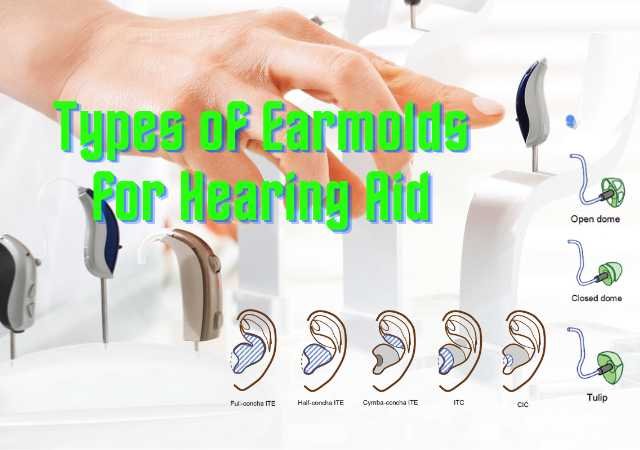 Autism Symptoms Adult Women and Men: Autism Spectrum Disorder (ASD) is a multifaceted neurodevelopmental disorder characterized by variable expression. Most of what we know about autism has been centered around diagnosing it in children and then understanding how to provide support, but it has become increasingly clear that autism is prevalent in adults too. It is vital to identify autism in both men and women early for effective intervention and care. This extensive article addresses the unique characteristics of autism symptoms found in both genders and in adults.
Autism Symptoms Adult Women and Men: Autism Spectrum Disorder (ASD) is a multifaceted neurodevelopmental disorder characterized by variable expression. Most of what we know about autism has been centered around diagnosing it in children and then understanding how to provide support, but it has become increasingly clear that autism is prevalent in adults too. It is vital to identify autism in both men and women early for effective intervention and care. This extensive article addresses the unique characteristics of autism symptoms found in both genders and in adults.
Understanding Autism Spectrum Disorder (ASD)
Diverse Presentation Across the Spectrum
- Autism Spectrum Disorder (ASD) represents a spectrum of conditions, from mild to severe.
Those with ASD can have difficulties with social communication as well as repetitive behaviors or restricted interests.
Challenges in Diagnosis
Autism has been historically challenging to diagnose in adults, as a notably high number of individuals mask their symptoms and higher-functioning individuals are at particular risk of diagnosis being missed.
Grown ups may cope by suppressing some characteristics, leading to difficulty diagnosing ASD.
Autism Symptoms Adult Women
Unique Challenges for Women
Due to societal expectations and certain gender norms, women on the autism spectrum might have also ended up with a different set of challenges.
Women are more likely to camouflage or mask their behaviours, which means they can often be missed or their diagnosis is delayed,” she says.
Social Camouflaging
Women on the autism spectrum can also display behavior known as social camouflaging, in which they mimic the social behaviors of neurotypicals to blend in.
This can make them extremely spent and cause mental health problems as they go through social situations imitating learnt behaviours rather than natural ones.
Sensory Sensitivities
Sensory sensitivities can be more pronounced in women on the autism spectrum.
Some sounds, lights, or textures can be too much, affecting their everyday life a lot.
Intense Interests
Speaking here about adult women on the autism spectrum: Many women develop a single or a few intense interests or hobbies, obsessing over certain subjects.
They can be a source of both comfort and expertise for them.
Autism Symptoms in Adult Men
Communication Challenges
For instance, adult men with autism often have difficulty with both verbal and non-verbal communication.
Common challenges include trouble interpreting social cues and sustaining eye contact.
Repetitive Behaviors
Men with autism may continue to exhibit repetitive behaviors, such as hand-flapping or rocking, well into adulthood.
If your dog is engaging in these behaviors, try to remind yourself of what a big change it is for your dog, and that these behaviors can act as both self-soothing behaviors and expressions of anxiety.
Routine Dependency
Men on the autism spectrum often prefer repeated structure and become anxious when that structure is broken.
Autistic individuals find comfort in sameness and predictability.
Overlapping Autism Symptoms Adult Women and Men
Social Difficulties
Adult women with and without autism struggle with social interaction, as do men.
- Difficulties in understanding social nuances and interpreting non-verbal cues are common across genders.
Communication Variabilities
Indeed, girls their age may have a very different communication style, but both may have learned to struggle with sharing emotions or responding in conversation.
Sensory Sensitivities
Sensory sensitivities are ubiquitous among adult autism in women and men.
Some specific environments or stimuli might be so negatively overwhelming that that we need to develop specific coping mechanisms to participate in daily life.
Recognizing the Unseen Signs
Late Diagnoses and Missed Opportunities
Many adults, regardless of gender, are diagnosed with autism later in life.
Delayed diagnosis, wreak havoc on early interventions and bespoke support.
Mental Health Implications
Individual who remain undiagnosed or diagnosed late can have mental health disorders such as depression and anxiety.
It is vital to understand the link between autism and mental health to ensure holistic care.
The Role of Advocacy and Support
Increasing Awareness
It is important to bring attention to the signs and symptoms of autism in adults so that early detection and treatment can take place.
Community education can help with stigma and understanding.
Support Services
It is important to build tailored support services appropriate for the different needs of adult women and men with autism.
Services for individuals on the spectrum can include occupational therapy, social skills training, and counseling.
Empowering Individuals
Building Evolution: Empowering Adults with Autism: Embracing Strengths & Future Opportunities
When we create inclusive environments, people feel like they belong and are accepted.
Other Factors Related to Autism Symptoms Adult Women and Men
Challenges in Diagnosis: Diagnosing autism in adults is not without challenges. Limited awareness and misunderstanding of adult symptoms lead to delayed or missed diagnoses.
Impact on Daily Life: Autism affects many aspects of daily life. From dealing with autism to navigating social interactions, processing sensory overload, building support systems, etc.
Cultural and Social Perspectives: Cultural perspectives can influence the perception and explanation of autism symptoms. A better awareness and cultural understanding is essential for the proper diagnosis and support.
Treatment Options: There are different treatment options that can help manage symptoms of autism. Interventions not customized to the individual will yield the best outcomes.
Coping Strategies: The adults suffering from autism must have practical coping strategies. Increased well-being also results from certain lifestyle changes like introducing structure and sensory accommodations.
Success Stories: Featuring adults living well with autism shows that it can be done and people with autism can live wonderful lives. They serve as shadows of their successes and contributions, pushing the boundaries of what is possible and reworking perceived realities.
Future Directions in Research and Development: Adult Autism Is An Emerging Field There is ongoing work to improve the understanding and support for people on the spectrum.
Conclusion: Autism Symptoms Adult Women and Men
If we want to disentangle the spectrum of autism symptoms in adult women and men, we need to take into account the systemic difficulties that each sex experiences. The characteristicbandwidth of behaviours and traits in the spectrum range, from the subtle social disguises found in women to the daily dependencies common in men, allow for better clarity in diagnosing symptoms and tailoring appropriate intervention strategies.
It is important to remember that autism is not the same for everyone and their needs, and experiences can differ significantly. To embrace neurodiversity is to acknowledge and appreciate the strengths and abilities of individuals along the spectrum. In doing so, we contribute to a more inclusive and understanding society—one that appreciates and amplifies the experiences of autistic individuals.
FAQs about Autism Symptoms Adult Women and Men
- Is autism only diagnosed in childhood?
- No, autism is diagnosed in adulthood, although this has its own challenges due to the lack of awareness.
- What are common coping strategies for adults with autism?
Some coping strategies involve structured routines, sensory accommodations and cultivating support networks.
Are men and women with autism a homogeneous group with similar symptoms?
It includes symptoms that are common, but due to gender-specific challenges it governs the way symptoms are expressed.
- How can family and friends support adults with autism?
Understanding and patience and making space for everyone in that environment are two things that can help adults with autism.
- Where can I find more resources on autism in adults?
Seek out trusted organizations, support groups, and online communities related to adult autism for further resources.
References:
- “The Complete Guide to Asperger’s Syndrome” by Tony Attwood. [Book]
- “Neurotribes: The Legacy of Autism and the Future of Neurodiversity” by Steve Silberman. [Book]
- “Thinking in Pictures: My Life with Autism” by Temple Grandin. [Book]
- Language Disorders from Infancy to Adolescence 4th Edition – Rhea Paul [Book]
- Assessment in Speech Language Pathology A Resource Manual 5. Auflage, Kenneth G. Shipley, Julie G. McAfee [Buch]
- The American Academy of Pediatrics (AAP) in their guidelines on developmental surveillance and screening (AAP).
- The National Institute of Mental Health (NIMH) provides insights into the social challenges faced by individuals with ASD (NIMH).
- Research from the Autism Science Foundation sheds light on the various communication differences observed in individuals with ASD (Autism Science Foundation).
- The work of Dr. Temple Grandin, a renowned expert with ASD, provides valuable insights into sensory sensitivities (Dr. Temple Grandin).







0 Comments